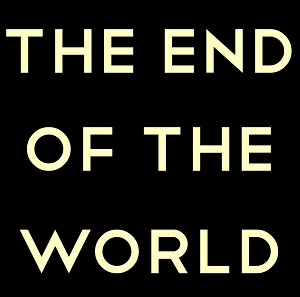Dark Comedy was at its brightest in the nineties. Before the rise of the Internet, before the bleedi
Dark Comedy was at its brightest in the nineties. Before the rise of the Internet, before the bleeding of American Culture into Another American Culture into Another American Culture, before 9/11, one might offer the hypothetical that the middle to upper-middle class white American was experiencing a general feeling of invincibility. Such that tragedy rarely struck, and when it did, it only struck others. Such that their collective existence, which was mostly benign, unimposing, “run-of-the-mill,” was off the radar from anyone’s ire, be it from an individual or a group. And this naive false sense of immortality led to boredom. Or self-resentment. Or confusion. Or guilt. Or all of these.One could then posit that the establishment of these stupid tumultuous feelings and thoughts resulted in an exploration of the thing from which these middle to upper-middle class white Americans felt most detached. Which is death. That by addressing death, one could directly confute the feelings of immortality that they knew were incorrect but nevertheless experienced. And even though one might know the correct general way to handle death when it presents itself to you involves solemnity and an understanding that it is a definitive end to a formerly living thing, these men, so distanced from this seemingly far-off yet so so inevitable event, could only look at death and laugh at it, for difficulty of believing it could ever happen. For the stupidity of finding it so difficult to believe it could ever happen. For, really, the absurdity of such beliefs. Hence the violence. Hence Johnny the Homicidal Maniac. Hence Butt-Head embedding a bat into the back of Beavis’s head. Hence Mark Beyer’s Amy and Jordan, forever suffering and tormented by living. Bill Plympton and Quentin Tarantino and darker episodes of The Simpsons.Don Hertzfeldt’s contribution was back in 2000, the cult cartoon shorts of Rejected. Stick figures drowned in blood, tortured, destroyed by the same hand from which they were created. It is easily found online if you haven’t seen it, and it is worth a viewing. Just search Don Hertzfeldt Rejected Youtube. Moron.Since then Dark Comedy seems to have matured and evolved. The tragedy in which artists find comedy now is more personal and direct. Finding the irony in the way real actual humans might meet untimely demise. Today I read a Gawker headline about a man being electrocuted while attempting to post a photo of a sunset to his Facebook. Ha ha, ho ho, what a way to go. Poor guy, but what a way to go. We all are so attuned to the comprehension of tragedy that we are able to digest and excrete it in microseconds and then proceed to gnaw on it and taste it with different salivary glands that result in more pleasurable flavors. Sure, it is sad that the man died, but can’t you appreciate the ridiculousness of it? And I’m sure his family can as well. By coating a new layer of emotional interpretation over the first layer of universally accepted misery we sublimate bad feelings into better ones. We make real death complicit in our sense of humor to show a more complex interpretation of sadness. So that today our Dark Comedy has a heartbeat, and no, I have no idea whether this is good or bad, and this sentence is a whole other cultural phenomenon, the castration of conviction by hyper-perspicacity. The End of the World has this heartbeat that Rejected so outspokenly lacked. In fact, the only way it ever seems to be funny is in the context of Hetzfeldt’s past work. What Hertzfeldt accomplishes in this graphic novel is what art and poetry seem to be more and more interested in expressing as a result of our hyper-perspicacious lifestyles. Rather than direct us to one tone, we encounter several in concert. These images tell us nothing in particular in the most profound ways, so that they achieve so many feelings all at once. They are funny but also sad but also frustrating but also astounding.Rather than tell a linear story, Hertzfeldt chooses to capture little poetic scenes that progress in content to give us a basic idea that things are happening and how they are happening and to whom they are happening. At the beginning there are commercials and advertisements. By the end there are corpses and monsters and starvation and death. It happens to no particular individual, the individual is not important, but rather the poetry of its existence is what matters. Like Instagram. Like Tumblr. A little book of anonymous but shareable events, meshed together to narrate something. It is very much a work of our generation.Oh and also it’s a nice short read and can be found at antibookclub.com. -- source link
Tumblr Blog : deepbones.tumblr.com
#don hertzfeldt#dark comedy#mark beyer#the nineties#invincibility#comics#graphic novel#review#comedy#tragedy
